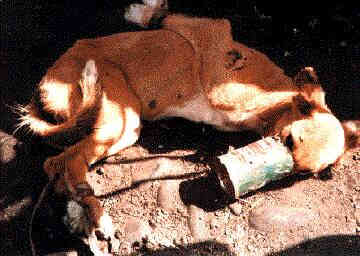
NGO in Special Consultative Status with the Economic and Social Council of the United Nations
 |
NGO in Special Consultative Status with the Economic and Social Council of the United Nations |







| "Horror Of Illegal Dog Trade Animal welfare campaigners have accused the Philippines government of not doing enough to end the suffering of dogs bred for the dinner table. |
 |
 |
There was such a jumble of heads, tails and legs it was impossible to tell which limbs belonged to which dog. According to animal rights campaigners, each night truck-loads of dogs like these are driven in appalling conditions from the southern suburbs of the capital north to the mountainous region of Baguio, where they are butchered, sold and eaten as a delicacy. |
| Pal members who later accompanied the 75 dogs to the local pound said that 30 of them were dead on arrival. Fines The truck driver and his mate, two dishevelled Filippinos in grubby T-shirts and shorts, were led off to the police station. They were released after questioning. |
 Brunt: "shocked" |
 Illegal trade |
Today, little is being done to enforce the new laws. An early-morning raid on an illegal slaughterhouse took us into a scene from hell. It was no more than a grubby backyard with bamboo shelters, its cracked concrete floor splattered with fresh blood. |

